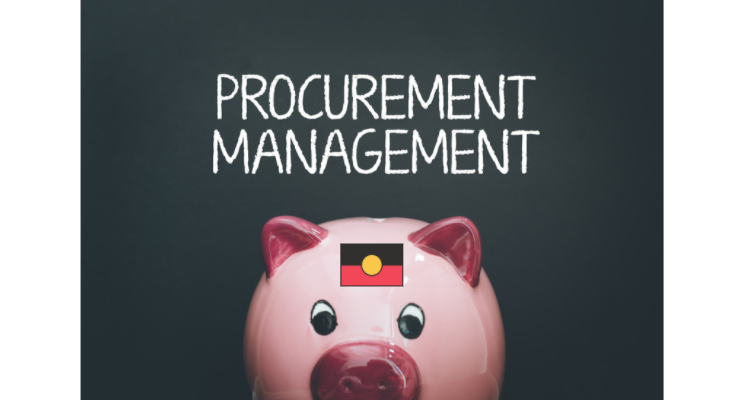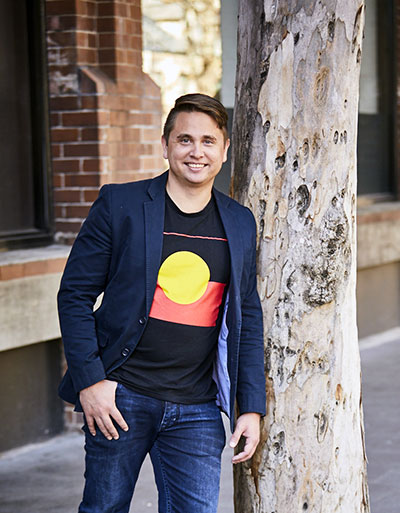A clear view on proposed Indigenous Procurement Policy changes
By Dean Foley >>
A NEW article claims MPs from both sides of the political divide have called for stricter criteria for Indigenous businesses applying for federal contracts.
The report is supposedly backed by Liberal and Labor MPs, calling for more rigorous criteria to be applied to those bidding for government contracts under the Indigenous Procurement Policy, which is administered by the National Indigenous Australians Agency (NIAA).
In this commentary article, we'll explore the recommendations made and key points from Canberra Times' article 'Tighten Indigenous contract checks: report'.
Random audits for businesses that have contracts
The Public Service Commission has recommended random audits for businesses that have contracts under the Indigenous Procurement Policy. This is to help ensure that businesses are meeting their obligations. 
One of the main reasons for this is because there has been a growing concern of people being taken advantage of and others who are not fulfilling their government contracts, or worse, purposely acting in a fraudulent manner and purposedly stealing from their communities.
I recently received a proposal from a non-Indigenous business that wanted Barayamal to apply for a government grant and receive all of the money if successful. It was ridiculous since Barayamal would be the one applying and responsible for the government funding and reporting. However, this ridiculous (real) example is more common than some people would like to think, and there are vulnerable people who get taken advantage of by these 'opportunities'.
However, more red tape is not necessarily better since some government contracts already implement risk management methods like milestone funding to decrease the risk of businesses that don't reach the required targets.
Indigenous businesses are often faced with uncertainty, especially when it comes to government contracts.
Businesses with a proven record should be given more freedom and less red tape so they can innovate quickly and make a bigger difference in our community. 
To build a trustworthy system, we must be able to eliminate those who abuse the system and allow those who care and do good to thrive. - Dean Foley
51 percent Indigenous ownership
This requires that the business owners verify that Aboriginal and/or Torres Strait Islander people own at least 51 percent of the business by checking the provided Confirmation of Aboriginality documents and share structures registered with ASIC and/or other documentation (such as partnership documents or trust deeds).
In conclusion, this identification only measures actual business ownership instead of where the money generated or profits will go -- it only takes into account who is actually in charge or who has majority 'control'. In theory, the 51 percent Indigenous business could even own 90 percent of the business but the majority of profits will actually go to the non-Indigenous partners.
Because of this 'shallow' tick in the box, this has led to 'Black Cladding' (joint ventures) which are providing opportunistic companies/individuals with an opportunity and an unfair advantage to win government contracts.
This is nothing new, I've heard from numerous sources that countries in Africa have similar issues with non-African/black businesses using shell companies in partnership with locals to win government contracts. One individual was supposedly the 'go-to person' with over 15 businesses (joint ventures).
Instead of ownership and 'control' of the business, I believe Indigenous businesses should be priority measured differently.
Just like charities in Australia are given special treatment because they are helping solve social issues which commercial businesses don't get, Indigenous businesses that operate from an Indigenous entrepreneurship perspective should also receive special treatment based on their community development achievements.
The Australian Charities and Not-for-profits Commission doesn't cater to Indigenous entrepreneurship, which is why there needs to be a separate entity to certify and manage Indigenous-owned businesses that are operating from an Indigenous entrepreneurship perspective.
Indigenous businesses should receive special treatment akin to charities because they are solving community issues that the government and non-Indigenous businesses (including charities) cannot.
“You've still got to build entrepreneurs, your community, corporations and your nation's initiative in a way that reflects who we are." - Miles Richardson
Dean Foley is the founder of Barayamal, Australia's Indigenous business incubator and accelerator. He served five years in the Royal Australian Air Force before founding Australia’s Indigenous business accelerator, Barayamal – now known as a world leader in Indigenous entrepreneurship. Dean is an action-oriented entrepreneur, former-Microsoft RAP Advisory Board member, CSIRO STEM Award winner, Indigenous Digital Excellence (IDX) Entrepreneurship Award winner, and proud Kamilaroi Man from Gunnedah, NSW.
ends

 How to resolve AdBlock issue?
How to resolve AdBlock issue?